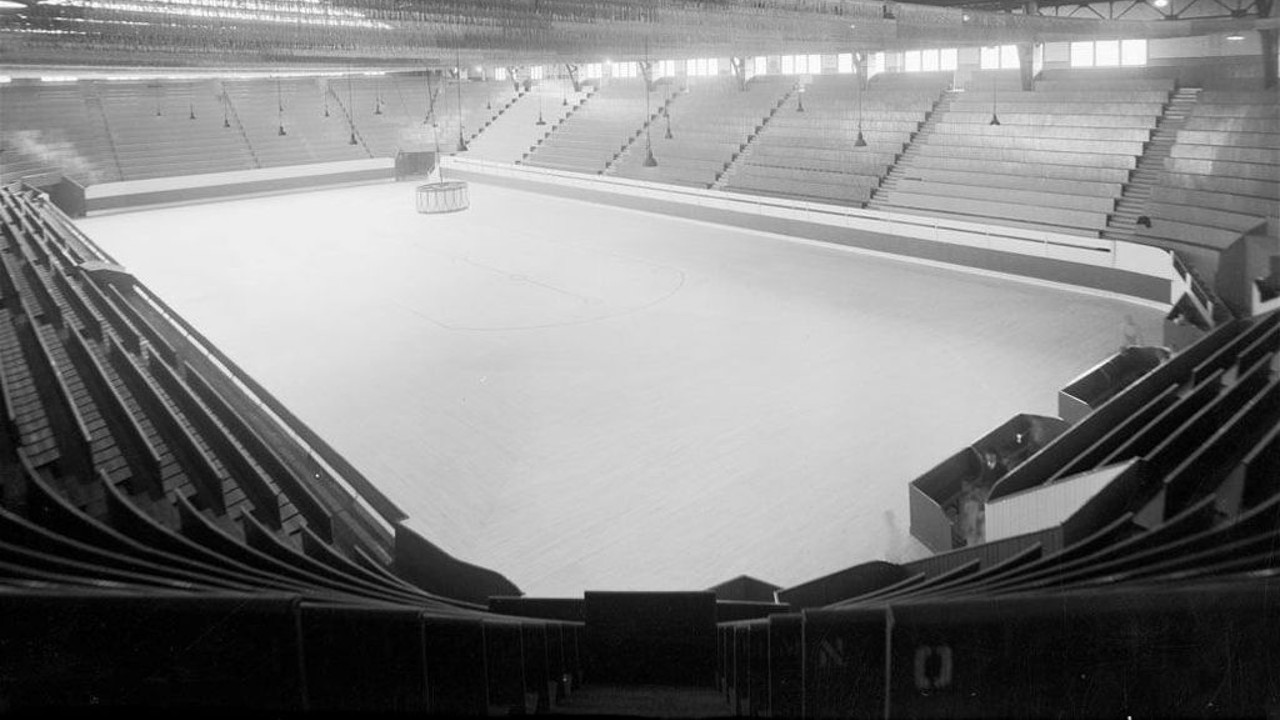
It’s an image as Canadian as maple syrup: The whole family gathering around the TV or radio to follow along with Hockey Night in Canada.
Hockey broadcasting holds a unique place in the national imagination, and has for generations. Over the years, it’s evolved to the point where you can consume games from any major market on any day of the week.
But before you could watch on a variety of channels and devices…
And before Hockey Night in Canada was even broadcast on the radio…
Heck, before there were pro hockey broadcasts of any kind…
There was a Toronto Star reporter taking to the airwaves to call the third period of a random game in 1923.
The first hockey broadcast ever
The first hockey radio broadcast took place at Arena Gardens, a now-long-gone arena on Mutual St. near Dundas St. E., on Feb. 8, 1923.
The arena was the original home of the Toronto Hockey Club — the team that would become the Maple Leafs — and the site of Toronto’s first Stanley Cup. (Which doesn’t technically belong to the Maple Leafs. Long story.)
But no Leafs- or NHL-affiliated team was involved in the first hockey broadcast. Instead, it was North Toronto vs. Midland in the Ontario Hockey Association playoffs.
Who called it?
Though Foster Hewitt is often credited with originating the hockey broadcast, the legendary play-by-play announcer was not in fact the first person to call a game via the airwaves.
That honour goes to Norman Albert, a reporter for the Toronto Star.
The Star owned and operated Toronto’s first radio station, CFCA, and had begun broadcasting in April 1922. So it was natural that they would be at the forefront of calling hockey games for the masses.
On the night of the game in question, Albert set up in a small booth near the ice, and described the events of the third period for CFCA listeners.
Here’s how the Star described it in the paper the following day:
“The announcer who described the play was right by the side of the rink and as he spoke, his voice was shot into space…. The vivid description of Norman Albert gave listeners the chance to mentally see the fast action.”
Albert called three more games that same month — including the first NHL radio broadcast on Feb. 14, between the Toronto St. Patricks and Ottawa Senators — before eventually getting replaced by the aforementioned Hewitt, another Star employee at the time.
While no archival audio exists from this era, we do have some home recordings Hewitt made years later. Here’s one from Feb. 12, 1949:
But, wait, what happened in the Feb. 8 game?
North Toronto won 16–4. So Albert’s third-period call came in what would unofficially be known as “garbage time” by today’s standards.
Though the game wasn’t hotly contested by teams we still know and love today, there was still some Canadian sports royalty on the ice that night. Lionel Conacher scored six goals for North Toronto in the Feb. 8 tilt.
Among his many accomplishments, Conacher was named Canada’s top athlete of the first half of the 20th century, and is a member of Canada’s Sports Hall of Fame, the Canadian Football Hall of Fame, the Canadian Lacrosse Hall of Fame, and the Hockey Hall of Fame. (He also played baseball professionally for the Toronto Maple Leafs baseball team.) (He also won boxing and wrestling championships.)
Conacher’s brother Charlie would win the Stanley Cup with the Maple Leafs in 1932. Both Charlie and another Conacher brother, Roy, are also in the Hockey Hall of Fame.
Please share this
No comments:
Post a Comment